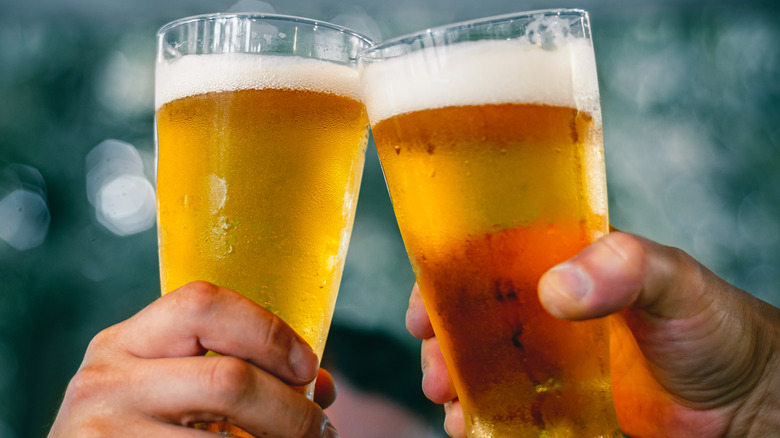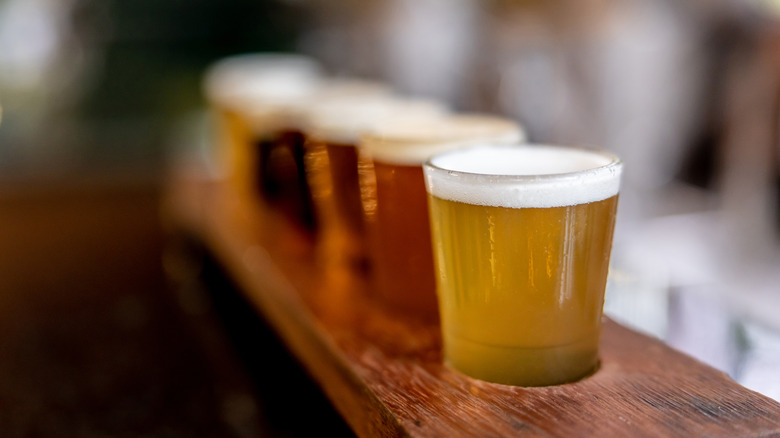The Ingredient That Makes Some Beers Non-Vegan
There are myriad myths about beer, one of which is that all beers are basically the same. However, from light, crisp lagers to dark, fruity ales and everything in between, not all beers are created equal. For instance, the fermentation process for the two main types of beer is vastly different: Ales are fermented at higher temperatures, while lagers ferment at much lower temperatures. But that's not the only difference. Some beers also contain animal-derived ingredients like isinglass, which comes from the swim bladders of certain fish, making them unsuitable for vegans.
The good news for beer fans who want to avoid consuming animal products is that most beers are, in fact, vegan-friendly. While some brands do use non-vegan ingredients like honey, the majority are made with ingredients like water, barley malt, hops, and yeast, making them plant-based and suitable for herbivores. However, the refining process that some breweries use to clarify their beers is where things can get ... well, fishy.
Isinglass is derived from fish bladders
To appear brighter and clearer, beers undergo a clarifying process that uses various fining agents to filter out particles of yeast and, on occasion, bacteria. While some brewers use plant-based agents like Irish moss, others opt for animal-based products like isinglass, a clear form of gelatin obtained from the swim bladders of fish such as cod and hake. (Traditionally, sturgeons were the primary source of isinglass, but they were so heavily fished in the 19th and 20th centuries that they nearly went extinct, leading commercial fishers to switch to more abundant species.)
Today, advancements in filtration technology have reduced the use of isinglass as a fining agent, but it's not entirely obsolete, particularly among American craft brewers. For those seeking a vegan-friendly brew, isinglass isn't the only ingredient to keep an eye out for. Beers may also contain a plethora of other animal-derived ingredients, too.
Other non-vegan ingredients lurking in beer
In addition to isinglass, your favorite beer could contain several other animal-based ingredients. For example, the milk protein casein can be used as a clarifying agent, while albumen — also knows as egg whites — can serve as a foaming agent. And that's not all; from chitin and chitosan — fining agents derived from crabs and lobsters — to milk-based sweeteners like lactose, the list goes on.
Unfortunately, determining which beers are actually vegan isn't as straightforward as reading the product's ingredient label. Alcoholic beverages like beer, wine, and other spirits aren't regulated by the U.S. Food & Drug Administration and thus aren't required by law to disclose their nutritional facts. Instead, they fall under the jurisdiction of the Alcohol and Tobacco Tax and Trade Bureau, which makes ingredient labeling optional (though disclosures for specific ingredients, like saccharin and aspartame, are required).
To ensure your chosen brew is free of all animal-derived ingredients, beverage guides found on sites like Barnivore and Viva make finding vegan-friendly beers a breeze.



